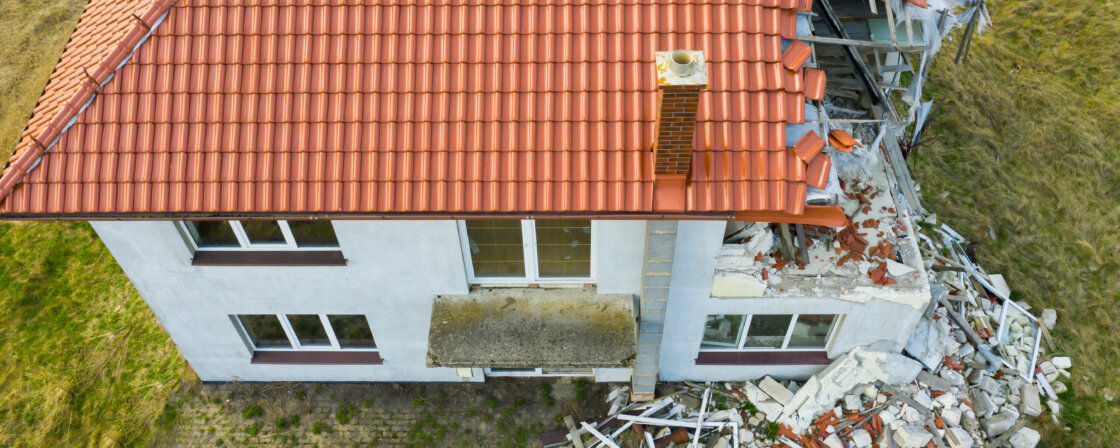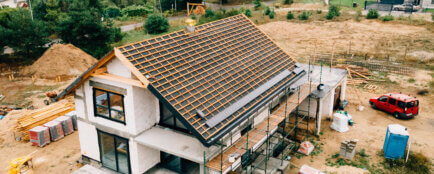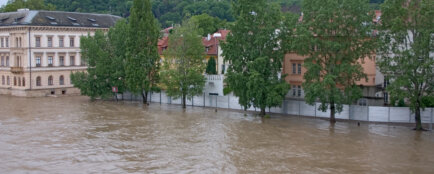As we outlined in the introduction: insurance can be recommended to all property owners. It will provide financial protection against damage caused by natural disasters, fires, vandalism or other unexpected events. Property insurance is particularly important in areas with a higher risk of flooding or other natural disasters.
It is always important to choose the right type and extent of cover to suit the value of the property and the individual needs of the owner.
Insurance becomes compulsory, for example, when obtaining a mortgage, where the insurance company usually requires it as a guarantee against loss of value of the mortgaged property.
Are you solving a similar problem?
Solutions Tailored for You
Our team of experienced attorneys will help you solve any legal issue. Within 24 hours we’ll evaluate your situation and suggest a step-by-step solution, including all costs. The price for this proposal is only CZK 690, and this is refunded to you when you order service from us.
I Need help
- When you order, you know what you will get and how much it will cost.
- We handle everything online or in person at one of our 6 offices.
- We handle 8 out of 10 requests within 2 working days.
- We have specialists for every field of law.
Property insurance for a mortgage
By compulsorily insuring the property for which the mortgage is granted, the bank protects its investment, because in the event of damage to the property, its value is preserved. Mortgage property insurance protects both the borrower and the lender at the same time. The insurance must usually be taken out before the mortgage is approved and must be maintained throughout the term of the mortgage loan.
The cost of mortgage insurance, if a mortgage is obtained, depends on the value of the property and the extent of cover. It is not necessarily more expensive than normal property insurance, but must meet the bank’s minimum cover requirements. Insurance is crucial to protect both the property owner and the bank in the event of unforeseen events such as natural disasters or fires. The bank will usually define the range of cover that the policy must necessarily cover, and you can take out a policy for other areas of interest in addition.
Tip for article
Wondering how to buy a mortgage-financed home? Then you must not miss our next article, in which you will learn the conditions for obtaining a mortgage.
The insurance required by the bank relates to the property as such and not to the items brought into it. This is also why it is preferable to separate building and home insurance in these situations. While the bank will have “say” in your building insurance and you will have to discuss any changes with them, you will have complete flexibility in your home insurance and the power to change it whenever the situation requires.
The fundamental peculiarity of this mortgage is that you are insuring someone else’s property at the outset. However, this will change once the purchase has been made and registered with the Land Registry.
If you want to change the contract in a fundamental way, increase the insurance benefit or enter into a contract with another insurance company, you must discuss everything with the bank without fail. Without the bank, the existing policy cannot be cancelled as it is listed as a party to the contract. You will only be released from this obligation when the mortgage is paid off.
Tip for article
The price of property insurance is determined based on a number of factors that reflect the risks associated with a particular property. Which of these are fixed and when can you influence the price of the policy yourself? That’s what we look at in our next article.
House building insurance
Home building insurance protects the owner’s investment against unforeseen events such as fire, flood or theft of building materials. It is particularly recommended when the building is a significant investment and there is a risk of damage caused by, for example, severe weather, vandalism or theft of building materials and equipment. Construction in progress insurance thus provides protection for the investment throughout the construction process.
But how do you insure something where one week you find piles of bricks, the next week you find steel frames and profiles, for example, and generally the whole building is constantly changing dynamically? Moreover, it may not even be possible to secure it sufficiently for a certain period of time.
House building insurance usually covers damage caused by unforeseen events such as fires, floods, theft or vandalism. It is important to update the sum insured regularly to reflect the actual value of the investment. Insurance companies often offer flexible solutions that allow you to continuously adjust the insurance coverage according to the current condition and value of the building. Some insurers also offer special packages for house building insurance, which can be easily converted to standard property insurance at a later date.
What does property liability insurance mean?
Property liability insurance protects the owner of a property against financial claims from third parties for damages caused in connection with that property. This includes, for example, accidents on the property or damage caused by falling objects from the property. If someone suffers damage and claims that the condition of your property is to blame, this insurance can protect you from financial claims and lawsuits.
Tenant’s property insurance
There is one significant, and very common, situation where renters insurance for a property you don’t own may be recommended. It is renter’s insurance for your home. In this case, however, it will typically be more about insuring the household, i.e. the items that the tenant has brought in. This includes furniture, books, jewelry, electronics, and other personal items. Renters property insurance can be highly recommended because in most cases, home or condo insurance by the property owner does not cover the personal property of the renter or damage caused by the renter. The homeowner may not even know what property is currently in their apartment. However, it may be advisable to clarify when negotiating a lease which party is insuring the apartment for what and to what specific extent.
In our law practice we have also encountered a situation where the landlord only laconically told the tenant that “the apartment is insured and he does not have to worry about anything”, which the tenant (admittedly somewhat naively and unthinkingly) understood to mean that all his property is insured as well. When thieves broke into the first-floor flat and took the tenant, Mr Pavel, a computer and electronics worth 170 000, he expected that everything would be paid for from the insurance policy. However, it only covered the broken glass.
Tip for article
Tip: Have you entered into a lease agreement and don’t know your exact obligations and rights under it? We can advise you on whether you can keep an animal in the apartment and bring visitors if the contract forbids you to do so. In our separate article, we also explain who pays for repairs to the flat and what to do if the flat is damaged.
How can the insurance of an unapproved room or building differ?
Insurance companies may view unlicensed properties as a higher risk due to potential safety or structural deficiencies. As a result, the cover offered may be limited or specific policy conditions may be required. It is important to consult with the insurer on these aspects and to specify the exact nature of the unauthorised room when arranging insurance.
Summary
Property insurance is crucial to protect an owner’s investment from unexpected events such as natural disasters, fires or vandalism. In some cases, such as when arranging a mortgage, it is even mandatory so that the bank can be sure that the property will not lose value. The insurance covers not only finished properties, but also buildings under construction, which are exposed to the risk of theft and damage. Liability insurance is also an important aspect, protecting the owner against third party claims for damage caused by the property. A specific case is tenant’s insurance, which focuses mainly on his personal property in the rented apartment. Therefore, when arranging insurance, the scope of cover and the individual needs of the owner or tenant must always be carefully considered.
Tip for article
Do you want to change insurance companies because of unsatisfactory conditions? Or have you discovered an offer that is much better? Read on to find out when you can terminate your insurance policy.




